Leonardo DiCaprio – Saving our Planet
The Leonardo DiCaprio Foundation, established in 1998, is protecting the Earth’s last wild places by working on pressing environmental and humanitarian issues through grant making, campaigning, and media projects. DiCaprio produced the documentary film “The 11th Hour” about the environmental state of the Earth, which included input from politicians, scientists, and environmental activists.
DiCaprio currently serves on the board of the World Wildlife Fund, the Natural Resources Defense Council, International Fund for Animal Welfare and Global Green USA. He’s currently taking a well deserved break from starring in films to recharge and dedicate time to environmental activism.
On the third anniversary of the historic Global Tiger Summit, the Leonardo DiCaprio Foundation has awarded a $3 million grant to World Wildlife Fund (WWF) for a bold initiative to help Nepal double its wild tiger numbers by 2022 – the next Chinese Year of the Tiger.
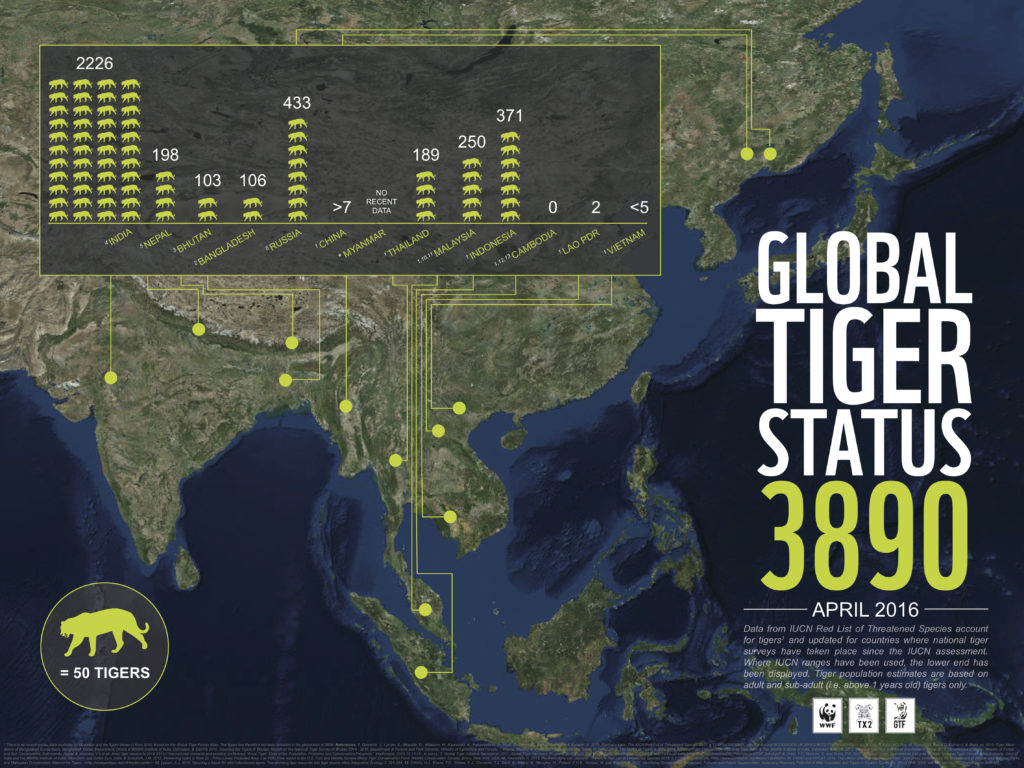
In June 2017 DiCaprio wrote: Our oceans are critical to the long-term health of our planet. They regulate global temperatures, provide half of the world’s oxygen, and directly support the life of nearly 50% of all living species. Their vast waters cover almost 70% of the planet’s surface, feeding billions of people.
But today, the oceans are in trouble.
Limitless fishing, pollution, and resource exploitation have pushed these irreplaceable ecosystems to the brink of total collapse. With less than 3% of our oceans currently protected, there is much work to do.
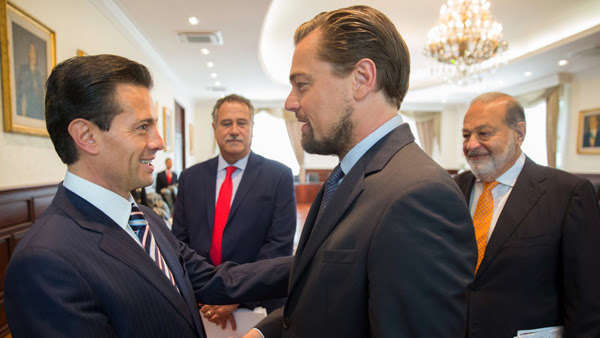
The Leonardo DiCaprio Foundation and its partners is working with indigenous groups, international organizations, and local coalitions to secure more than 1.6 million square kilometers of marine protected areas in all five oceans – an area more than twice the size of Texas.
Leonardo DiCaprio met with President Enrique Pena Nieto of Mexico and Carlos Slim of Fundación Carlos Slim to sign a formal commitment to save the vaquita, a critically endangered species of porpoise that live in the Gulf of California. On June 17, 2017, the Mexican government, the Leonardo DiCaprio Foundation, and the Carlos Slim Foundation signed a Memorandum of Understanding (MOU) to protect the remaining critically endangered vaquita. Vaquita, a small species of porpoise endemic to the Gulf of California, are the most endangered aquatic mammal in the world, with an estimated population of just 30. Read More >
2017 is not only the 50th anniversary of The Graduate. It’s the twentieth anniversary of the great film Titanic, invoking the classic warning: “We haven’t got time to rearrange deck chairs on the Titanic https://cz-lekarna.com/.” The Titanic turns twenty-one in 2018. Have we as a society reached adulthood? Can we face our crises? Or are we still rearranging deck chairs on the Titanic?
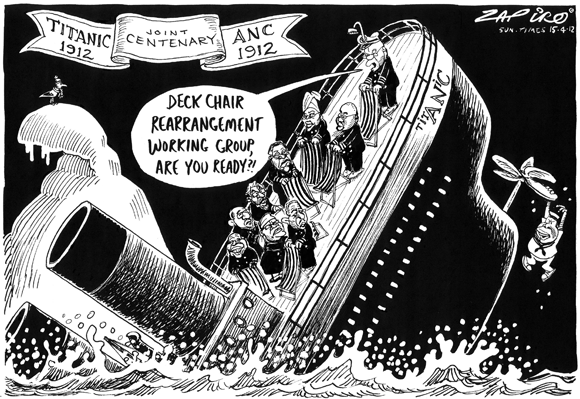
The cartoon above is more than ironic. This expression of the failure of bureaucracy to motivate individual initiative and creativity calls for an alternative, the principle of collaborative autonomy underpinning earthDECKS, which acknowledges that each individual has different capacities and ways to contribute. We need a distributed system that can tap those differences.
Leonardo DiCaprio is using his star power to focus on the challenge of saving our oceans.
The Great Barrier Reef & the future
The Great Barrier Reef has been hit by back-to-back cases of coral bleaching over 2016 and 2017, causing scientists to fear for its future. According to an aerial survey conducted by the James Cook University’s ARC Centre of Excellence for Coral Reef Studies in Queensland, 900 miles out of 1,400 miles of the reef have been bleached due to higher water temperatures. Read more >
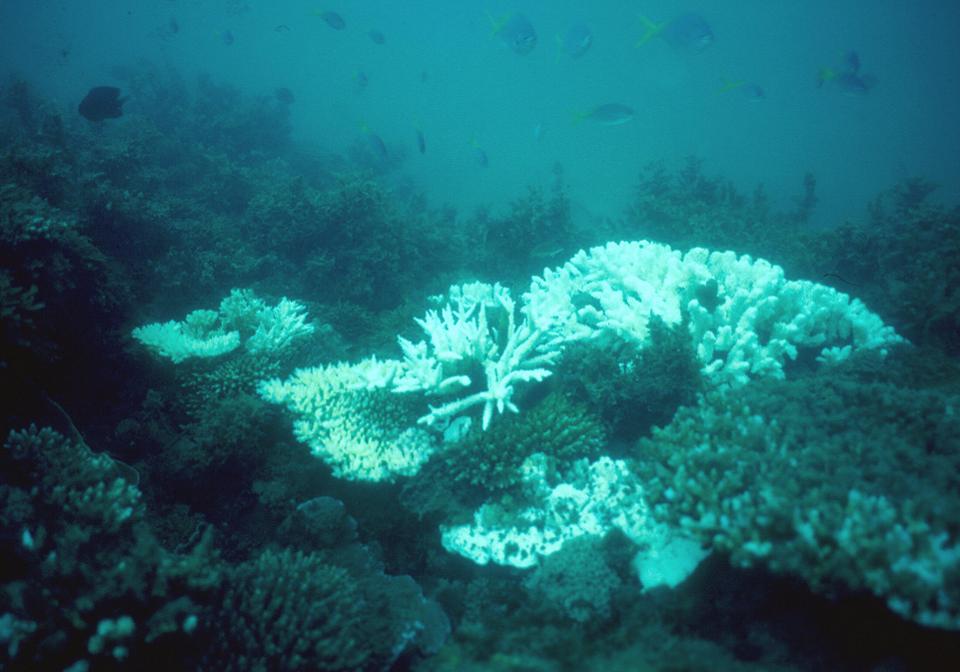
The Great Barrier Reef is described in a National Guardian article as being at terminal stage. Back-to-back severe bleaching events have affected two-thirds of Australia’s Great Barrier Reef, new aerial surveys have found.The findings have caused alarm among scientists, who say the proximity of the 2016 and 2017 bleaching events is unprecedented for the reef, and will give damaged coral little chance to recover with two thirds of the reef severely damaged by global warming. Read more >
Coral bleaching is expected to become “more frequent and more severe,” as a result of steadily rising ocean temperatures, continuing and accelerating the long-term trend of coral decline. It is a view that resonates with UNESCO’s World Heritage Center, which issued its own assessment on June 23, 2017 warning that many World Heritage coral reefs were likely to disappear by 2100 unless carbon dioxide (CO2) emissions were drastically reduced.
A Deloitte report cites (but does not reference) a 2014 study that values the ecosystem services provided by coral reefs at US$352,249 per hectare per year. The Great Barrier Reef Marine Park covers 35 million hectares with 2,900 individual reefs of varying sizes, making the ecosystem services The Great Barrier Reef provides worth trillions of dollars per year — essentially priceless. Read more >
Global Fishing Watch
Global Fishing Watch, a project supported by LDF, hopes to end illegal fishing by allowing anyone to track commercial fishing activity online. On June 7th, the governments of Peru and Indonesia committed to making their national tracking data available to Global Fishing Watch, setting a new precedent in transparency and the fight to protect marine ecosystems. Read more >
The picture below shows thousands of squid that washed up dead on the beaches of Chile.
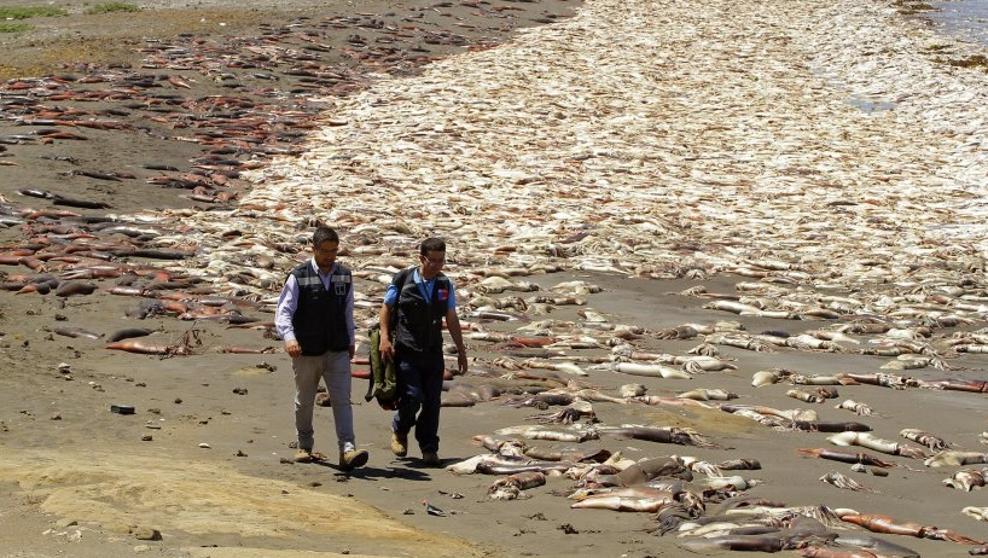
News articles from the Leonardo DiCaprio Foundation
Sign up for the monthly newsletter of the LDC Foundation
Zann Gill for earthDECKS
* The aphorism “rearranging Deckchairs on the Titanic” refers to doing superficial things while failing to see or address the big problem (a sinking ship). That quote was launched by the Washington Post, 16 May 1976, when Rogers Morton, who had lost five of six primaries as President Ford’s campaign manager
American public relations officer, said: “I’m not going to rearrange the furniture on the deck of the Titanic.” See The Oxford Dictionary of Quotations (5th Ed. 1999), page 533. This expression was also used in the early 70s to describe New York’s Lincoln Center financial mismanagement: “Administrators [at Lincoln Center] are running around straightening out deck chairs while the Titanic goes down.” See the N.Y. Times, 15 May 1972, p. 34.
